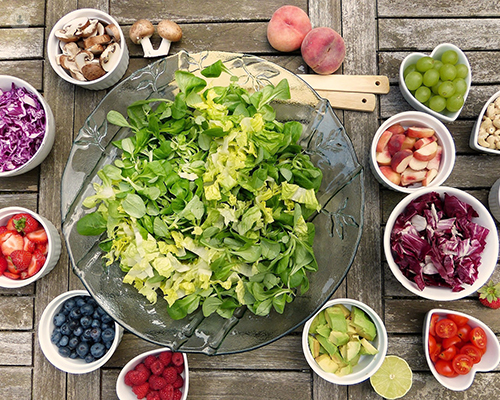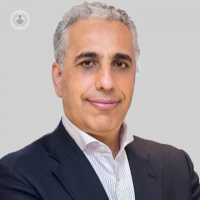Nourishing wellness: The impact of nutrition on breast cancer risk
Written by:In his latest online article, highly experienced consultant oncoplastic breast surgeon Professor Kefah Mokbel offers his expert insight into the impact of nutrition on breast cancer. He answers his patients’ most frequently asked questions, such as whether or not diet can Increase the risk of breast cancer.

What role does nutrition play in breast cancer risk?
Nutrition plays a crucial role in our overall health, and emerging research suggests that it can significantly impact our risk of developing breast cancer. Lifestyle factors, such as diet and exercise, account for approximately 50% of all breast cancer cases. Understanding the relationship between nutrition and breast cancer risk can empower individuals to make informed choices about their diet and lifestyle.
Can diet increase the risk of breast cancer?
Evidence suggests that certain dietary habits increase the risk of breast cancer. Consumption of processed foods, foods high in animal fat, and carbohydrates has been linked to higher breast cancer risk. Additionally, excessive intake of red meat and sweet sugary drinks may further elevate this risk. Alcohol consumption and physical inactivity are also strong predictive factors for increased breast cancer risk.
Are there dietary strategies to mitigate breast cancer risk?
Conversely, adopting a Mediterranean-style diet rich in fresh fruits, vegetables, legumes, herbs, and spices may offer protection against breast cancer. Incorporating foods like raspberries, cherries, blueberries, kale, broccoli, sprouts, cauliflower, and tomatoes into your diet can provide valuable nutrients and antioxidants that help safeguard against cancer development. Beverages like green tea and coffee have also been associated with a reduced risk of breast cancer.
How does physical activity influence breast cancer risk?
Maintaining a healthy weight through regular physical exercise is essential for breast cancer prevention. Exercise not only helps to control body weight but also reduces inflammation, improves the immune system and improves hormone regulation, factors that play a role in breast cancer development. Ensuring adequate blood levels of vitamin D is important and may require a regular intake of vitamin D3 supplements (1000 iu daily).
What are the key takeaways for reducing breast cancer risk through nutrition and lifestyle choices?
Making mindful dietary choices and leading an active lifestyle can significantly reduce the risk of breast cancer. By prioritising whole, nutrient-rich foods and incorporating regular physical activity into our daily routine, we can take proactive steps to protect our health and well-being.
Professor Kefah Mokbel is a renowned consultant oncoplastic breast surgeon based in London. If you would like to book a consultation with Professor Mokbel you can do so today via his Top Doctors profile.


